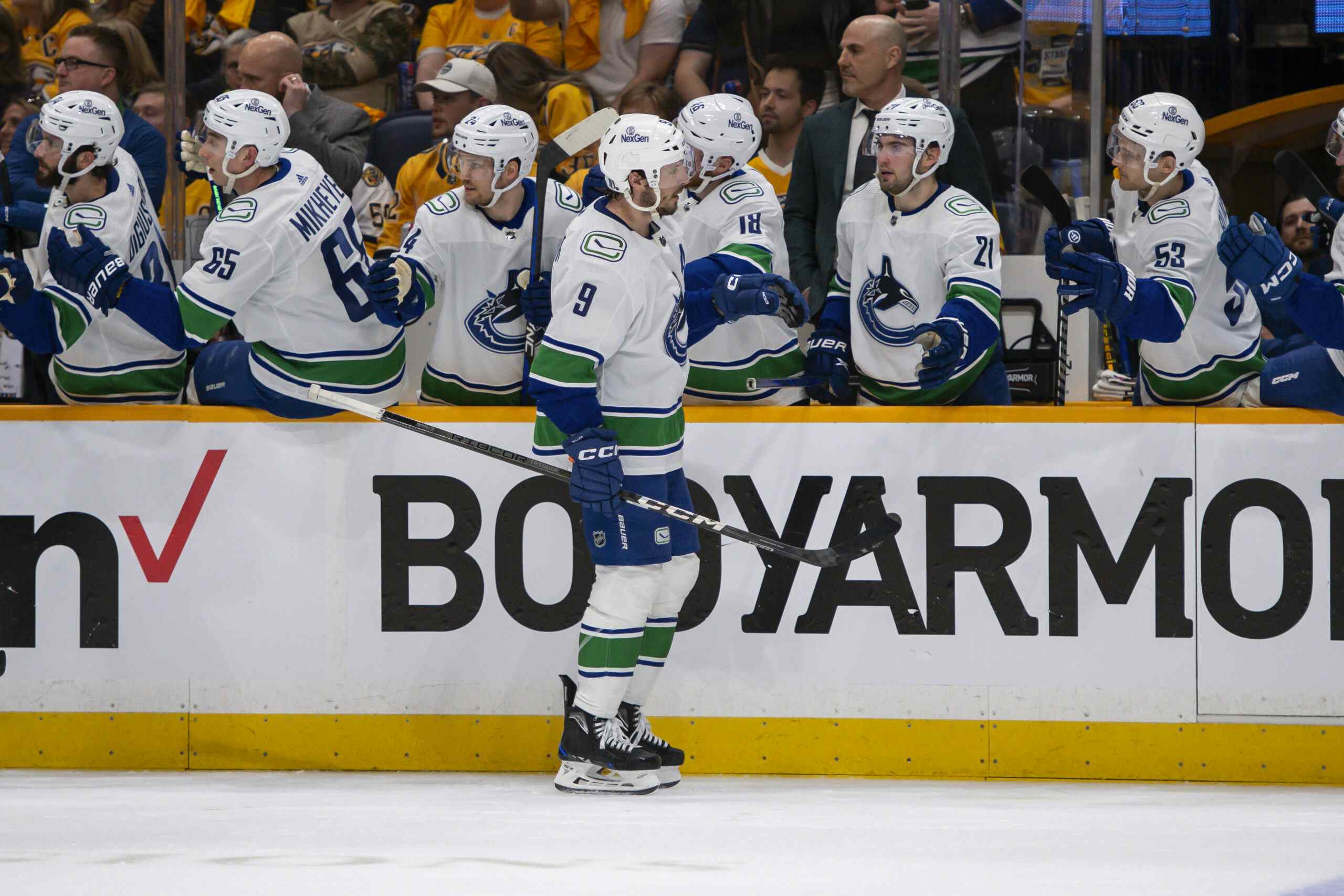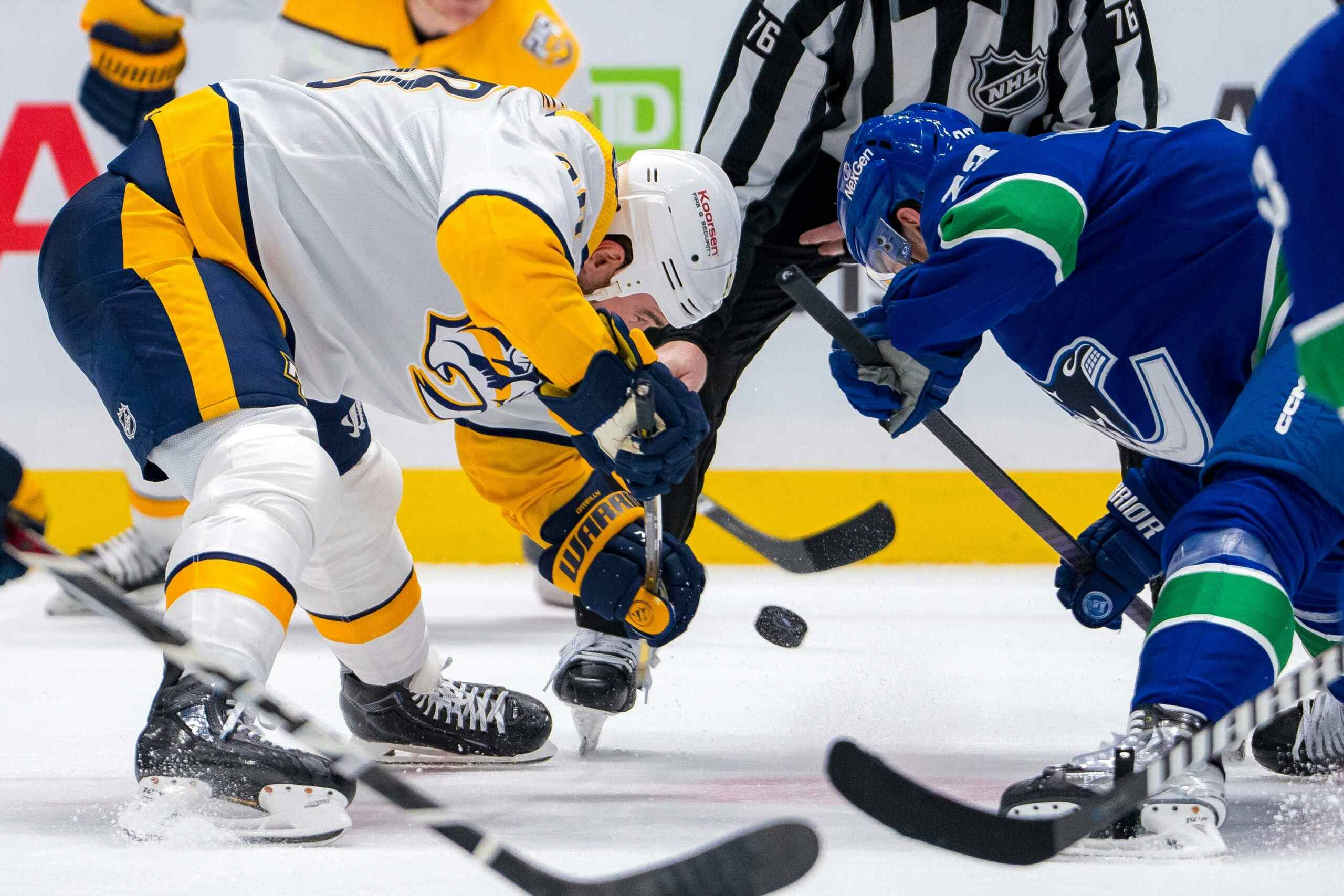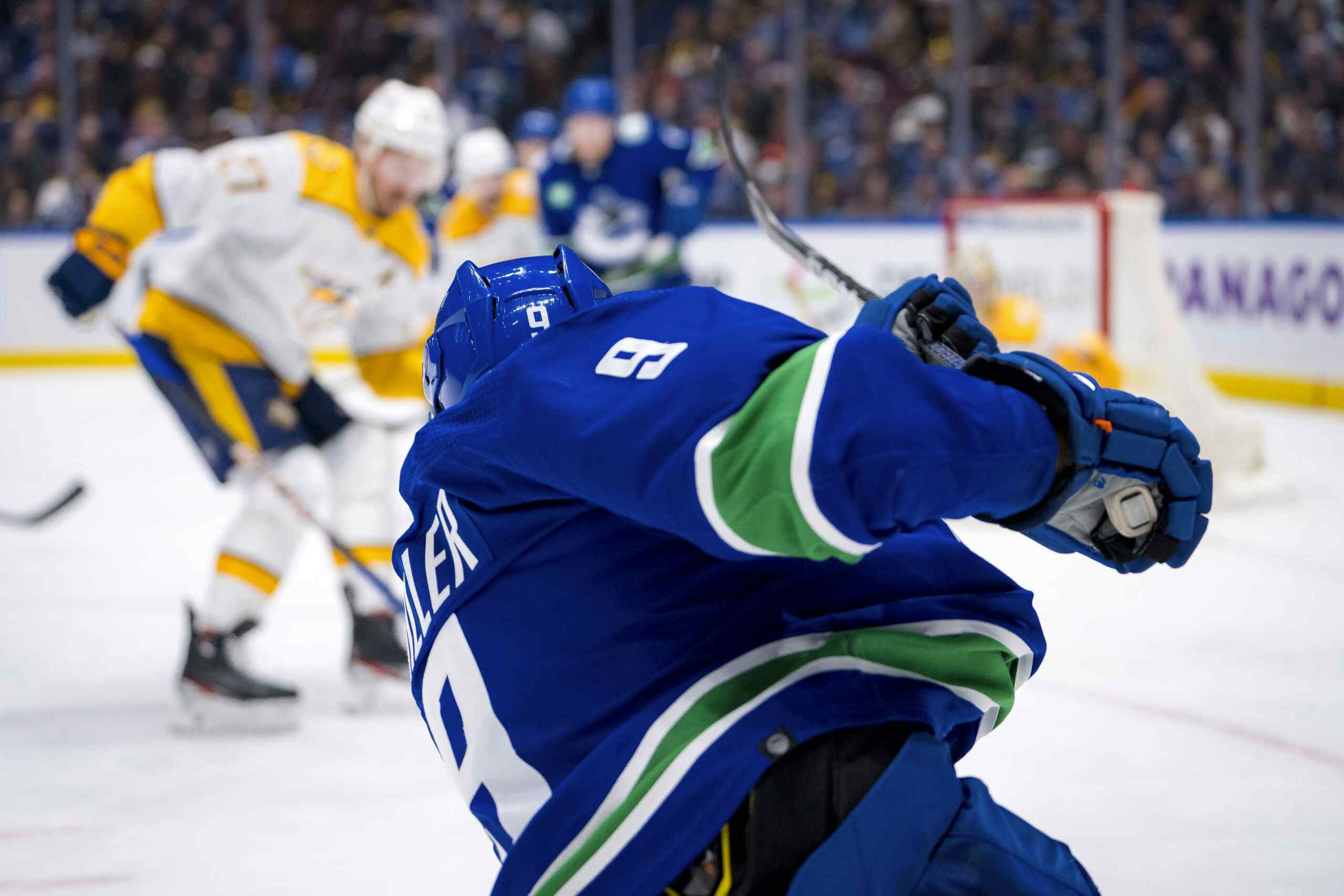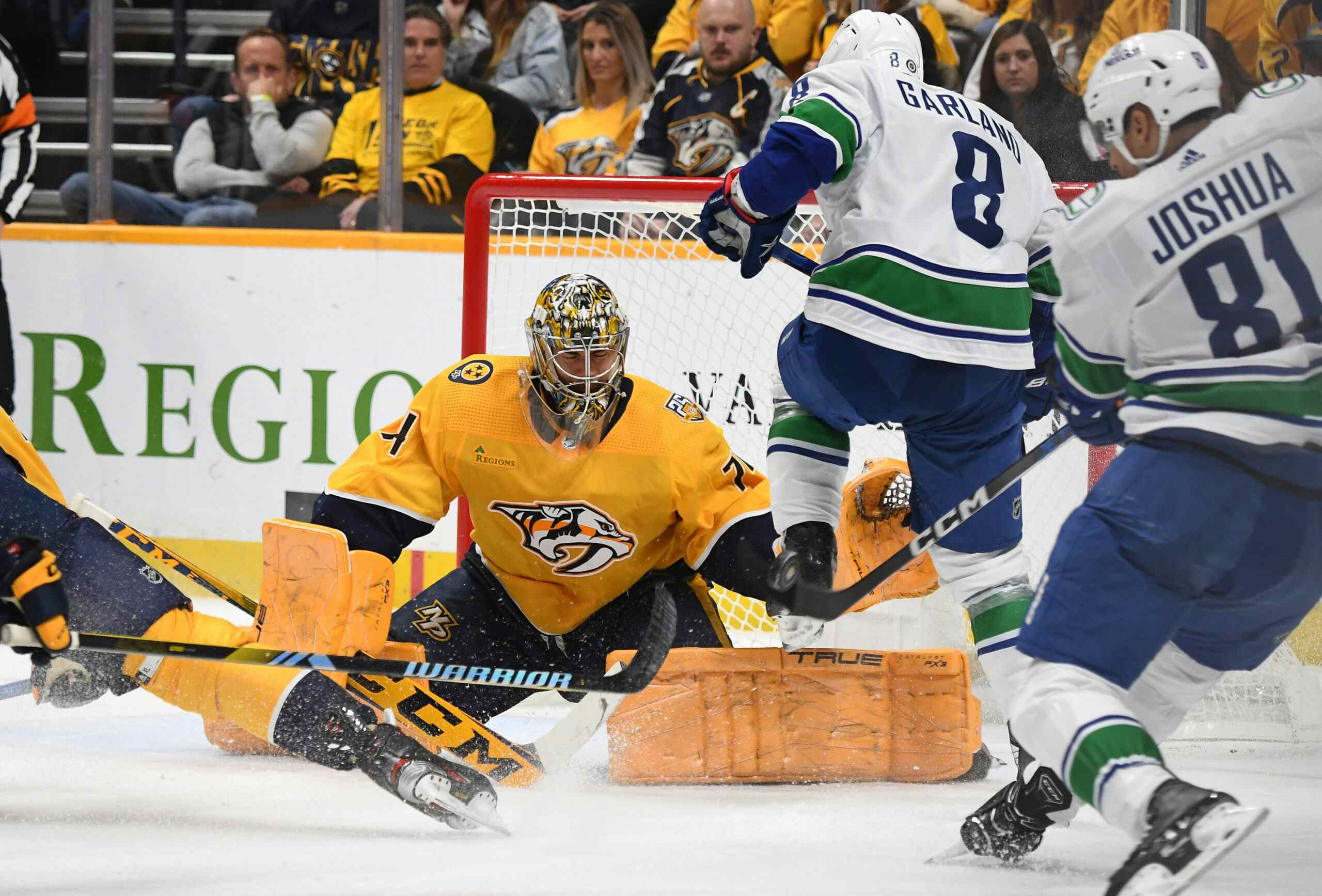Is Roberto Luongo’s Contract Immovable?

It’s now week two of the Canucks goaltending controversy, and unsurprisingly Canucks Nation remains obsessed. Luongo played well and pitched a quality start at home against the Flames last night, but that is not going to the halt the growing momentum of Vancouver’s "goaltending controversy gollum."
When Luongo allowed a vintage softy from behind the net late in the first period, Canucks fans went into their default corner: Luongo apologists to the right, Luongo haters to the left. While I’ve enjoyed the odd "goaltending controversy" argument and am generally bemused by the entire thing, I’d point out that the situation hasn’t helped a habitually irrational fan-base to get a grip…
Amidst the supposed turmoil and scrutiny, a rumour surfaced this weekend courtesy the Ottawa Sun’s Bruce Garrioch:
The talk among league executives is the Canucks have dangled Luongo in trade circles, but haven’t been able to find anybody interested in his $5.3-million cap hit and contract that runs through the 2021-22 season. Schneider will be shipped out at some point."
So Luongo is getting "dangled," and oddly enough it’s not by Patrick Kane.
Now Garrioch’s weekly rumours column has been, as Jason Brough politely put it "ridiculed in the past" (Defending Big D had a stellar take down on a recent "Iginla to Dallas" trade rumour proliferated by Garrioch) but I figured this presents a good opportunity to take a look at Luongo’s contract, and his trade-ability (or lack thereof).
Let’s start with a couple of disclaimers: firstly, this is not a post advocating for Luongo to be traded – I’ll leave that to luminaries like the editorial board of the Vancouver Province and Scott Burnside. For the record, I think Luongo is a better goaltender than Cory Schneider, I think the "choker" label is silly and I’m confident he will find his game and regain the mantle as the team’s unquestioned starter come playoff time.
Why do It?
All that said, Cory Schneider has been extremely impressive in his young NHL career. Through fifty NHL starts, Schneider has inarguably given the Canucks goaltending comparable to what Luongo provides and at a fraction of the cost. Money-puck principles, which, the Canucks pretty clearly adhere too to some extent (perhaps more so than most NHL teams) would caution against over-spending on goaltending.
With all of that in mind, lets address the Garrioch rumour head-on: if Gillis wasn’t working the phones and gauging preliminary league interest in his overcompensated, life-time deal possessing starter, he wouldn’t be doing his job.
The Contract:
Luongo doesn’t have a particularly high Q rating among the hockey watching public, but there are several teams who I’m sure would love to add a Vezina and Hart nominee, Olympic gold-medalist and netminder who perennially posts a .920 (or better) save percentage. The sticking point, of course, Luongo’s oft-discussed life-time deal: the one the NHL took nearly a year to actually approve, and called out by name as "cap circumvention" when they rejected the original deal Ilya Kovalchuk signed with New Jersey.
The contract is a monster, and it carries a no trade clause, which limits the Canucks options even further. His deal pays him nearly seven million per season until 2018 (or six more seasons after this one). While the cap-hit (5.3 million) isn’t unreasonable for a goaltender with his track record, at the end of this season, he’ll still be owed nearly 50 million on his deal! There’s no way around it, that’s a spicy meatball, and it makes the prospect of an eventual Luongo trade exceedingly unlikely.
As a contemporary historical comparable, in the summer of 2010, Peter Chiarelli worked the phones in an effort to move aging netminder Tim Thomas. Thomas had three years left on a 5.2 million dollar deal at the time, and fatefully Chiarelli couldn’t find a taker. Granted Thomas was older than Luongo is now, and was coming off a significantly worse season than Luongo had last year, but his deal had way less term. The goalie market has changed somewhat since then, Bryzgalov’s deal this past offseason and Rinne’s extension this fall indicate that the highly paid goaltender is somewhat more in vogue than it was in the summer of 2010 (after Leighton and Niemi led their respective teams to the Finals). Still, with the size and term of Luongo’s deal, l it wouldn’t be a surprise if Garrioch’s comment that "[Gillis] hasn’t been able to find anyone interested" is true.
That said, I would’ve called Scott Gomez’s contract immovable. I cursed for the better part of thirty minutes when I found out that Bowman the Younger had done the impossible and found a taker for Brian Campbell. So let’s invoke the "Gomez Principal" that: "no player is truly untradeable," if only to permit this discussion to continue.
The Market
To satisfy my curiosity I made a list of teams that were in the bottom third of the league in save percentage last season, and continue to languish in the bottom 10 this year as well. The assumption is pretty simple: these are the team’s that probably believe they have a "need" in goal, and might, in their desperation pursue a "big name" goaltender, price be damned. The only alteration I’ve made to these parameters is to disqualify the New York Islanders, who can’t possibly add another goaltender with a life-time contract to their payroll.
The list of teams who could possibly look to acquire a big-name goalie? New Jersey, Phoenix, Tampa Bay, Columbus and Ottawa.
That’s a very short list, and is shorter still because several of those teams would be problematic Luongo destinations. Luongo would need to approve any potential trade, so we can throw Columbus out – because no one wants to play there. I think we can safely throw Ottawa out as well, I doubt a goaltender like Luongo, nearing the final few years of his prime, would want to go to a rebuilding team. Phoenix is a cap-floor team with an uncertain future, hard to see them being interested in Luongo, and hard to see him waiving his NTC to join the Coyotes. The dynamics of this particular option probably change if Phoenix is relocated to, say, Quebec City in the next season or two. That leaves us with New Jersey, and the most often discussed Luongo landing spot: Tampa Bay.
When you trade a bad contract, you usually have to take another bad deal back in return (like when Chicago took on Olesz’s contract when they made the Brian Campbell trade, Olesz is currently making three million per season in Rockford). New Jersey has four players signed beyond next season: Kovalchuk, Volchenkov, Tallinder and Andy Greene. None of those guys make sense for the Canucks, and none of them are on particularly unattractive deals. Tampa has two real albatross contracts: Lecavalier and Matthias Ohlund. While too much has been made of Yzerman and Luongo’s relationship, and of Luongo’s love of Florida, when you break down the options, Tampa’s probably the only NHL team that makes even a milligram of sense.
The Timing
While I suspect that Gillis has been taking calls about Roberto Luongo (and Cory Schneider) and gauging league interest in the two, I doubt that either goaltender will find themselves traded this season. There’s a number of reasons for this, namely that having two quality netminders is a useful luxury for a team with Cup aspirations, and also because unless the Canucks get a Godfather offer (one they can’t refuse) there’s no pressure to get a deal done in-season.
Cory Schneider’s contract expires following this season, but as Semyon Varlamov proved, the RFA rights to a talented young netminder are still very valuable on the trade market. When trying to move a potentially immovable piece like Luongo, it’s much more likely to happen in the offseason or at the draft – when team’s are typically thinking about making longer-term changes.
Finally, don’t expect Luongo to be traded this year. I’ll wager the Canucks will be in a holding pattern of sorts, at least until they see what shape the next collective bargaining agreement takes, after the current one expires this offseason. This is something of a hot topic at the moment, because the NBA recently settled their labour dispute, and one of the most intriguing facets of their new collective bargaining agreement is the Amnesty Clause.
The Amnesty Clause permits each team to buy out one deal during the duration of the CBA, without having to suffer the cap ramifications of said buy-out. The player still gets paid, but the buy-out amount isn’t counted against that team’s cap. If an option like this is authored into the next NHLPA/NHL CBA – would Canucks owner Francisco Aquillini stomach the 48 million dollar hit that a Luongo amnesty buyout would represent? I’d suspect not, even though Aquillini has spared no expense in his quest to build a championship team. Still, it’s a wrinkle to consider when discussing the Luongo situation and any potential trade, because you just know that the Canucks management team has.
Recent articles from Thomas Drance





